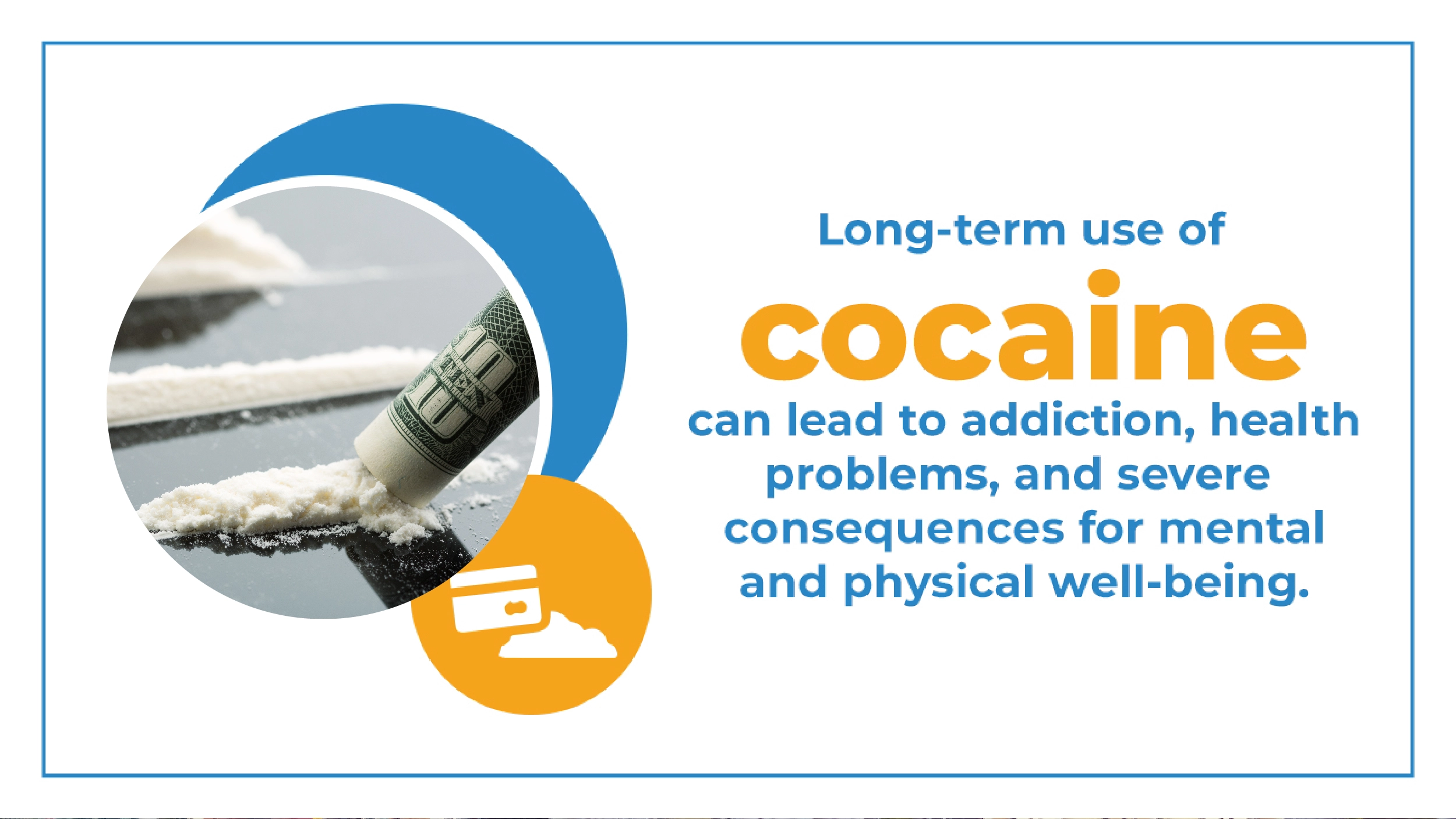
Examples Of Dual Diagnosis
Explore the examples of dual diagnosis and its treatment plans for better outcomes with The Recovery Team-Newton.

Cocaine, a potent stimulant drug derived from coca plants, can lead to compulsive and destructive patterns of use, resulting in addiction. This addiction often begins innocuously, with recreational or occasional use, but can rapidly escalate into a debilitating dependency.
Understanding the intricacies of cocaine addiction is vital to addressing its challenges and providing effective support and treatment for those afflicted by this debilitating condition.
Cocaine rehab and treatment services for cocaine addiction typically include residential care, outpatient care, and therapeutic interventions.
Residential treatment programs offer a structured and supportive environment where individuals can receive intensive care. These programs provide a range of therapeutic modalities, including individual and group therapy, to address the underlying causes of addiction, teach coping strategies, and promote relapse prevention.
Outpatient treatment programs allow for the patient to maintain their life outside of treatment. Outpatient care is especially beneficial for people unable to enter a residential treatment facility due to family or work obligations.
Therapeutic interventions are a crucial component of cocaine abuse treatment. Cognitive-behavioral therapy (CBT), motivational enhancement therapy, and contingency management are commonly used to treat cocaine addiction.
These behavioral therapies help individuals gain insight into their addiction, develop healthier habits, and build the skills necessary to maintain long-term recovery.
A personalized treatment plan, including medications, can help manage withdrawal symptoms and reduce cravings during the recovery process. Here’s what you need to know:
Contact The Recovery Team-Newton at (508) 978-2772 for more information and personalized medical assistance to embrace a drug-free life.
Recognizing the signs and symptoms of cocaine addiction is crucial in identifying the issue and seeking appropriate help.
Some common signs of cocaine addiction include:
If you are experiencing any of these symptoms due to cocaine use, reach out to The Recovery Team-Newton to discuss our treatment options.
You should seek cocaine addiction treatment when the above-discussed symptoms significantly disrupt daily life. Early intervention can effectively halt the progression of addiction, fostering better chances of successful rehabilitation.
It’s essential to prioritize prompt action and access comprehensive support and therapy to initiate the journey toward lasting recovery and improved well-being.
If you have a loved one who is struggling with cocaine addiction, approach the situation with compassion, understanding, and professionalism. Begin by having an open and non-judgmental conversation, expressing your concern for their well-being and the impact of their addiction on their life.
Encourage them to seek professional help from addiction specialists or rehabilitation centers, offering your support throughout the process. Take the time to educate yourself about addiction and its treatment options, as this will help you provide informed guidance and support.
Ultimately, the path to recovery may be challenging, but your unwavering support and encouragement can be a critical factor in their journey to a healthier, drug-free life.
Cocaine addiction, like other forms of substance addiction, is a complex condition that is influenced by a variety of factors.
Here are some common causes and risk factors:
Biological factors play a significant role in cocaine addiction. Genetic predisposition can increase an individual’s susceptibility to addiction. Research has identified specific genetic variations that impact how a person responds to cocaine and their vulnerability to addiction.
Additionally, differences in brain structure and function, particularly in areas related to reward and impulse control, can influence an individual’s likelihood of developing a cocaine addiction.
Neurochemical factors are integral to understanding addiction. Cocaine acts on the brain’s reward system primarily by increasing the levels of dopamine, a neurotransmitter associated with pleasure and motivation.
Repeated cocaine use can disrupt the balance of neurotransmitters, leading to changes in the brain’s reward circuitry. This neurochemical alteration can result in tolerance, where more of the drug is needed to achieve the same effects, and withdrawal symptoms when not using, driving continued drug-seeking behavior.
Environmental factors also play a crucial role in the development of cocaine addiction. Exposure to cocaine and the availability of the drug are significant environmental factors. Social and peer pressure, as well as living in communities with high drug prevalence, can increase the likelihood of experimenting with and subsequently becoming addicted to cocaine.
Childhood trauma, stressors, and a lack of a supportive social network can exacerbate the risk of addiction.
Psychological factors are fundamental to understanding why some individuals become addicted to cocaine while others do not. Cocaine addiction is often a coping mechanism for underlying psychological issues.
Individuals struggling with depression, anxiety, trauma, or other mental health conditions may use alcohol or cocaine to self-medicate, as it provides temporary relief from emotional distress. The reinforcing effects of the drug can lead to a cycle of use and addiction as individuals seek to escape their emotional pain.
Understanding risk factors can help in preventing or identifying the potential for addiction and in designing effective intervention and treatment strategies.
Some of the risk factors for cocaine addiction include:
One of the primary risk factors for cocaine addiction is social and peer pressure. People often experiment with cocaine due to influence from friends or social circles where drug use is normalized. The desire to fit in and conform to these social norms can lead to initial use, which may progress to addiction over time.
Stress and trauma are also critical contributors to substance abuse. Many individuals turn to cocaine as a means of coping with the stressors in their lives. The stimulant effects of the drug can provide a temporary escape from the emotional pain associated with trauma or the daily pressures of life.
Over time, this can lead to a dangerous cycle of dependency, as individuals increasingly rely on cocaine to manage their emotional well-being.
Early exposure to cocaine, whether through familial influences or personal experimentation, can significantly increase the risk of addiction. Children or adolescents exposed to cocaine within their family members are at a higher risk of developing addiction later in life.
Furthermore, studies suggest that individuals who experiment with cocaine at a young age may be more susceptible to its addictive qualities due to the developing nature of their brains.
A lack of awareness is another risk factor for cocaine addiction. Education plays a crucial role in providing individuals with the knowledge and critical skills to make informed decisions about drug use. People who are less educated about the risks and consequences of cocaine use may be more likely to experiment with the illicit drug without fully understanding the potential harm it can cause.
Cocaine is a highly addictive stimulant drug that directly affects the brain. Prolonged use of cocaine can have severe consequences on both physical and mental health.
Here are some of the effects associated with cocaine addiction:
Cocaine use takes a toll on the body, and chronic addiction can lead to severe physical health issues. These may include cardiovascular problems such as heart attacks and high blood pressure, respiratory issues, and the potential for infectious diseases due to risky behaviors associated with drug use.
The drug can also cause weight loss, malnutrition, and dental problems. In severe cases, overdose is a significant risk which can be fatal.
Crack cocaine use has profound effects on mental health. It can lead to intense mood swings, agitation, anxiety, paranoia, and even hallucinations. Users often experience cravings and withdrawal symptoms, which can exacerbate psychological distress.
Long-term use may contribute to depression, anxiety disorders, and cognitive impairments, affecting one’s ability to think clearly and make rational decisions.
Cocaine addiction can be financially ruinous. Users may spend significant amounts of money to sustain their habits, which can lead to financial instability, job loss, and even homelessness. As addiction worsens, individuals may become isolated from friends and family as their lives increasingly revolve around obtaining and using the drug.
This isolation and erratic behavior can lead to strained relationships with friends and colleagues.
Possession, use, and distribution of pure cocaine are illegal in most places. The legal consequences of cocaine addiction can be severe and long-lasting. Individuals may face criminal charges, including fines, probation, or imprisonment. These legal consequences can further disrupt one’s life and contribute to the cycle of drug abuse.
Treatment for cocaine addiction often involves a combination of strategies to address the physical, psychological, and social aspects of the addiction.
Common components of treatment for cocaine use disorder include:
Therapy is the most effective approach to mental illness treatment. Cognitive-behavioral therapy (CBT) helps patients reframe thought patterns and behaviors that fuel addiction. Contingency Management offers incentives for drug-free choices, and motivational enhancement therapy (MET) boosts motivation for recovery.
These approaches equip individuals with tools to manage cravings and stress, facilitating their journey toward cocaine addiction recovery.
Some individuals with severe substance use disorders may benefit from inpatient or residential treatment programs. These programs provide 24/7 care in a structured environment. They can be particularly helpful for those with a long history of drug use, co-occurring mental health issues, or a lack of a stable home environment.
While there are no FDA-approved medications specifically for drug problems, some medications may help manage related issues, such as depression or anxiety. Medications like disulfiram or topiramate have shown some promise in reducing cocaine use.
Support groups like Narcotics Anonymous (NA) or Cocaine Anonymous (CA) provide a supportive and non-judgmental community of individuals in recovery. These groups offer peer support and a structured program to help individuals maintain abstinence and build a sober network.
Quitting cocaine is exceptionally challenging due to its powerful, short-term euphoric effects, leading to intense cravings, withdrawal symptoms, and psychological dependence. The drug’s impact on brain chemistry and its grip on an individual’s life can make breaking the drug addiction a long and complex process, often requiring comprehensive support and treatment.
The duration of recovery from cocaine addiction varies widely among individuals. It typically involves multiple stages, with acute withdrawal symptoms lasting a few weeks. However, long-term recovery can take several months to years, depending on factors like the severity of the addiction, individual motivation, and the effectiveness of treatment and support.
Ongoing support and therapy are often necessary to maintain sobriety.
Cocaine addiction treatment can be found at reputable treatment centers and through addiction specialists. Consider treatment facilities with experienced staff, evidence-based therapies, and personalized treatment plans.
Seek recommendations from healthcare professionals or support groups. Treatment success often depends on individual commitment, comprehensive support, and access to aftercare programs.
Break free from the grip of cocaine addiction with The Recovery Team-Newton.
Our partial hospitalization treatment program offers comprehensive care for those seeking a structured and supportive environment to break free from addiction. The outpatient treatment program provides flexibility while ensuring the same level of care and support.
In addition, dual diagnosis treatment addresses underlying mental health concerns, offering a holistic approach to lasting recovery.
Take the first step towards a cocaine-free future. Call us at (508) 978-2772 today to start your recovery journey.

Explore the examples of dual diagnosis and its treatment plans for better outcomes with The Recovery Team-Newton.

Explore how long drug rehab programs are with the complete guide from The Recovery Team-Newton.

How much does drug rehab cost without insurance? The Recovery Team-Newton explains financing options and resources.